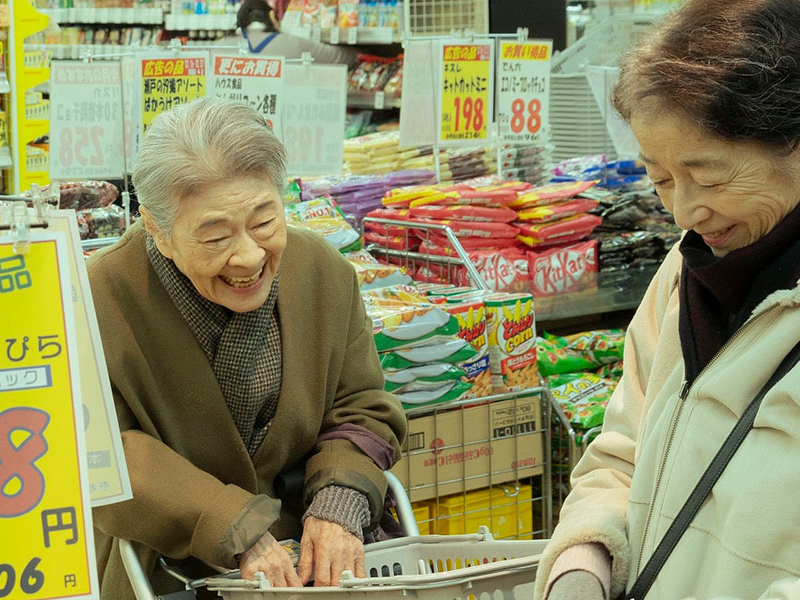
- Golden Globe Awards
Plan 75 (Japan)
Imagine a government that encourages its elderly to be euthanized to remedy the problems of an aging society.
That’s the premise of Plan 75, filmmaker Chie Hayakawa’s feature directing debut, which she wrote with Jason Gray. With sensitivity, the filmmaker concocts a scenario – what if the Japanese government implements a plan where citizens aged 75 and over are motivated to choose mercy killing in exchange for a meager financial package?
The drama won Hayakawa the Golden Camera – Special Mention prize when it premiered in the Cannes Film Festival’s Un Certain Regard section last May.
The Tokyo-born writer-director talked about the genesis of Plan 75 in our interview for Rappler.com: “In [Japan, in] the summer of 2016, a man murdered 19 disabled people purporting that severely disabled people have no worth staying alive and that his deed was an act of mercy. In his letter describing his motive, he used the words, ‘Vitalization of the world economy.’
“His logic was that the existence of disabled people hinders economic activity and that economic value is more important than human lives. I don’t believe that this way of thinking is confined to one deranged murderer. In our society where economic value is prized over everything else, I cannot help thinking that there are, in fact, many people who share similar emotions.
“Our capitalist society, which values rationality and productivity, creates the distinction between ‘worthy lives’ and ‘worthless lives.’ And critical views on socially weak people get stronger by the day. My anger and anxiety toward such intolerance of society motivated me to make this film.”
The story focuses on a senior woman, Michi (Chieko Baisho of Howl’s Moving Castle), who is in a precarious financial situation, a Plan 75 salesman, Hiromu (Hayato Isomura), and a Filipina caregiver, Maria (Stefanie Arianne).
On what inspired Hayakawa to include a Filipino caregiver in the story, she said, “There are so many foreign caregivers coming to Japan because of labor shortage, especially in the field of elderly nursing homes. The Philippines is one of the biggest countries to provide caregivers to Japan. The reason why I chose a Filipino caregiver is because I have an impression that Filipino people have strong family and community bonds that we Japanese are losing. “I wanted to contrast the warm Filipino community with the apathetic community in Japan. I also wanted to include the eyes of a foreigner who looks objectively at Japanese society.”
Hayakawa explained why she cast Japan-based Filipina actress Arianne: “She is a very affable and brave person. Her gaze and presence made a strong impression on me. Stefanie’s down-to-earth presence breathes life into Maria.”
The cast includes Taka Takao, Yumi Kawai and Sheryl Ichikawa.
The Japan-Philippines-France film, produced by Alemberg Ang, Wilfredo Manalang, Jason Gray, Eiko Mizuno Gray, Frederic Corvez, and Maeva Savinien, is Japan’s entry to the Academy’s best international feature race.
Manalang reflected on something similar to Plan 75 being carried out someday: “Population growth could be a problem for countries in the future. Let’s hope we don’t have to resort to Plan75-ish solutions. It’s a scary thought.”